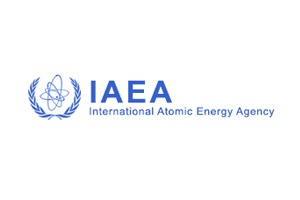
This Coordinated Research Project (CRP) seeks to advance the fundamental fusion-material research and technologies, in close connection with high gain target development, and enhance information exchange on Inertial Fusion Energy R&D, establishing an international network of working groups. This will open the door for more Member States to join the research efforts at different levels and contribute to moving forward in developing the peaceful use of fusion energy, serving the needs of both IFE and Magnetic Fusion Energy (MFE) communities.
The present CRP proposal is the continuity of former highly successful ones, which:
– Contributed to stimulation and promotion of Inertial Fusion Energy (IFE) development by improving international cooperation (Elements of power plant design for inertial fusion energy, 2000–2004);
– Covered research relevant to development of IFE and to enhancement of awareness in Member States regarding beam-plasma and beam-matter interaction, development of building blocks for IFE and on IFE power plants structure and integration (Pathways to Energy from Inertial Fusion: An Integrated Approach, 2006–2010);
– Provided an assessment of the material requirements, consequences and characteristic behaviours in pulsed, repetitively cycled IFE systems (Pathways to Energy from Inertial Fusion: Materials beyond Ignition, 2015–2019).
The CRP will comprise a coordinated set of research activities:
1. To advance the underlying science and develop novel materials for fusion energy.2. To understand the key processes in the target chamber.3. To assess tritium inventory and its handling.4. To develop next generation targets and diagnostics, that will also help enhance knowledge on high gain target materials.5. To develop driver (including materials research) and target fabrication technologies with an emphasis on repetition systems.
For that aim, it is planned:
1.1. To conduct supporting experiments in repetitive regimes of mechanical, thermal and radiation loads in relevant high-power pulsed plasma, beam and laser installations to understand the science of evolving materials (due to continuous erosion, re-deposition and continuous exposure to particles, radiation and plasma);
1.2. To understand the physics of electronic excitation in optical and dielectric materials which is the basic mechanism of material damage under high irradiation doses both in IFE and MFE;
1.3. To identify the limits in radiation power, particle flux, and radiation handling, for solid and liquid plasma facing component materials, and extend their performance to IFE and MFE reactor relevant conditions;
1.4. To coordinate experimental and modelling efforts towards common standards on material properties.
2.1. To investigate the interactions of the “dry” first wall material with deposited capsule, pellet debris/aerosol materials;
2.2. To examine the possible use of liquid metals as a “wet” first wall material;
2.3. To assess the requirements for chamber clearing in a reactor operating in the high repetition mode when considering driver and target injection, and first wall responses to implosions.
3.1. To evaluate chamber gas/exhaust compositions and the resulting chamber gas-wall interactions, to determine tritium inventory in an IFE power plant;
3.2. To understand mechanisms of permeation of hydrogen isotopes in the proposed materials, including the assessment of coatings from the manufacturing, adhesion and resistance;
3.3. To specify material requirements, and engineering strategies, for tritium breeding blankets and related systems, their development pathways and impact on the integrated power plant design with regard to confinement, storage and fuel cycle management.
4.1. To investigate alternative direct-drive ignition and high gain schemes including shock and fast ignition at intermediate and megajoule-scale laser facilities, in order to evaluate and validate their feasibility for IFE production;
4.2. To evaluate the neutron, particle, debris fluxes and inventory from next generation targets and their characterization for the chamber and blanket environment, first wall and final optics studies;
4.3. To evaluate target composition effects on neutron production and material modifications during the burning phase of the target, with newly developed in-line neutron diagnostics.
5.1. To develop technologies and appropriate structural and optical materials for rep-rate diode-pumped solid-state and KrF laser operation at the IFE relevant level with a high wall-plug efficiency;
5.2. To develop materials options and technologies for mass production, target injection and tracking systems for next generation targets with a low aspect ratio and increased robustness.
The efforts made by national and collaborative projects within this internationally coordinated framework will help advance nuclear fusion science and technology.
Objectives
The overall objective of this CRP is to advance the fundamental fusion-material research and technologies, and enhance information exchange on Inertial Fusion Energy R&D, establishing an international network of working groups.
Specific objectives
- To advance the underlying science and develop novel materials for fusion energy.
- To understand the key processes in the target chamber.
- To assess tritium inventory and its handling.
- To develop next generation targets and diagnostics
- To develop driver and target fabrication technologies
LEI activities in the Project
Project participants:
Chile
China
Estonia
France
Greece
Hungary
Italy
Japan
Lietuvos energetikos institutas, Lithuania
Poland
Portugal
Russian Federation
Serbia
Singapore
Spain
Ukraine
Project Team
| Name, surname | Office | phone. | |
|---|---|---|---|
|
LEI Representative |
|||
| Gediminas Stankūnas | 249-AK | +37037401972 | Gediminas.Stankunas@lei.lt |
|
Project Team |
|||
| Andrius Tidikas | 253-AK | +37037401941 | Andrius.Tidikas@lei.lt |
| Simona Breidokaitė | 315-AK | +37037401973 | Simona.Breidokaite@lei.lt |





